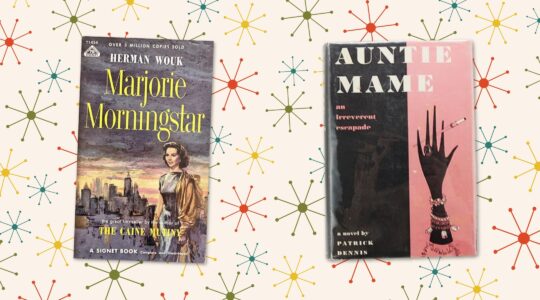We are at a camp that, to all intents and purposes, is a camp for musically gifted kids. We have 14-year olds-playing the Mendelssohn Violin Concerto, and 3 year olds playing Vivaldi’s A minor. There are kids composing, kids singing in complex harmony, kids playing drums and kids communicating by playing songs from the violin repertoire to each other. Then there is Elisheva.
She is 6 years old and after intensive everything can walk, talk and sort of play the violin. After 6 years of exposure to the Suzuki method she has mastered all the variations of Twinkle Twinkle and one or two other tunes. She proudly tells anyone who will listen that she has been in Book One for 10 years – quite an achievement for a 6-year-old.
Being the youngest of 5 has real advantages. She had no choice but to be dragged along to whatever family activities are going on – which in my family included walks around the lake, joining Arty Mouse at the Art Gallery and playing music. No matter that she didn’t weight-bear until she was over two, was too weak to hold a bow let alone a 32th violin until she was more than three, and that by five she had had more medical procedures and spent more time in hospital than doing anything else.
When Eli failed to thrive at 4 months, and no one expected her to live or have any quality of life, her big brother Ariel stood by her side and played the violin for her. His gift when everything seemed hopeless.
I didn’t understand enough about the Suzuki method of early childhood music education at that time. I didn’t realize that the musical environment could change her IQ and could help solve a whole range of educational problems. What I did understand was that this was a place where Elisheva was completely normal.
No one was perturbed by her staying in the beginner class term after term. The other 6-year-olds didn’t care which level of music activities she took part in. They were used to the idea that being little or big was not a relevant criteria – because there were incredibly talented kids to absolute beginners of every shape and size. Most of the kids accepted each other and were less inclined to being judgmental than their less talented peers. Where there was any resentment it was from competitive parents.
There were two important ways that my family’s experience of the Suzuki Music Method could be said to have saved my life.
First, I learnt that full inclusion is the minimum standard any of us should accept – and if it was possible in such an apparently competitive environment there could be no excuse for less than full inclusion anywhere.
One example should suffice. My 6-year-old grandson has just begun learning to play the flute. Because he is of school age, he was allowed to join the orchestra. There were no other criteria of entry, including ability to play more than a few notes on his instrument. This posed a challenge – not to the child but to the Music School. How can a flute player with 3 notes under his belt be part of an end of year performance of Swan Lake? The solution was to write him his own part and have a more advanced player sit with him and keep him on track.
From the point of view of Suzuki Music Education this is normal thinking – not something exceptional. In other words, it is more than just a dream that the community can assume responsibility to ensure inclusion.
The second thing I learnt from Betty, a very wise teacher, was about the criteria of success and nurturing the child. We are used to rewarding the reaching of objective goals, that some people may never ever reach. This might be the completion of a puzzle or reaching developmental milestones – things that might simply never be possible.
Betty told me of her difficulty with a student whose lesson was directly before Eli’s. She said she was confronted with a dilemma about what to say to a child when that child was doing everything imaginable wrong. Neither her feet nor hands were in the right position. The child missed every note; she messed up the bowing; she got the timing wrong. What she finally said to the child was: “you smiled beautifully while you played that piece”.
It is so easy for us parents to get depressed about our child’s abilities and achievements. We won’t always see that smile. But if we don’t look, it may be our actions rather than society’s that limit inclusion.
At a Chanukah party at my house last week, my daughter spontaneously took out her violin and played the chorus from Handel’s Judas Maccabeus. No matter that this is from book 3, and that Elisheva is 23! Her achievement added to the party atmosphere – and I don’t think anyone else present could have brought so much pleasure to so many people.
Melinda Jones is an independent scholar working on a range of projects related to disability, Judaism and Jewish law. Her previous research into human rights has included books, chapters and articles about the rights of people with disabilities (in domestic and international law); free speech & racial hatred; the rights of the child; religion & the law; and feminism, gender & women’s rights. Melinda taught political science and law at Australian Universities for over 20 years.
The New York Jewish Week brings you the stories behind the headlines, keeping you connected to Jewish life in New York. Help sustain the reporting you trust by donating today.




